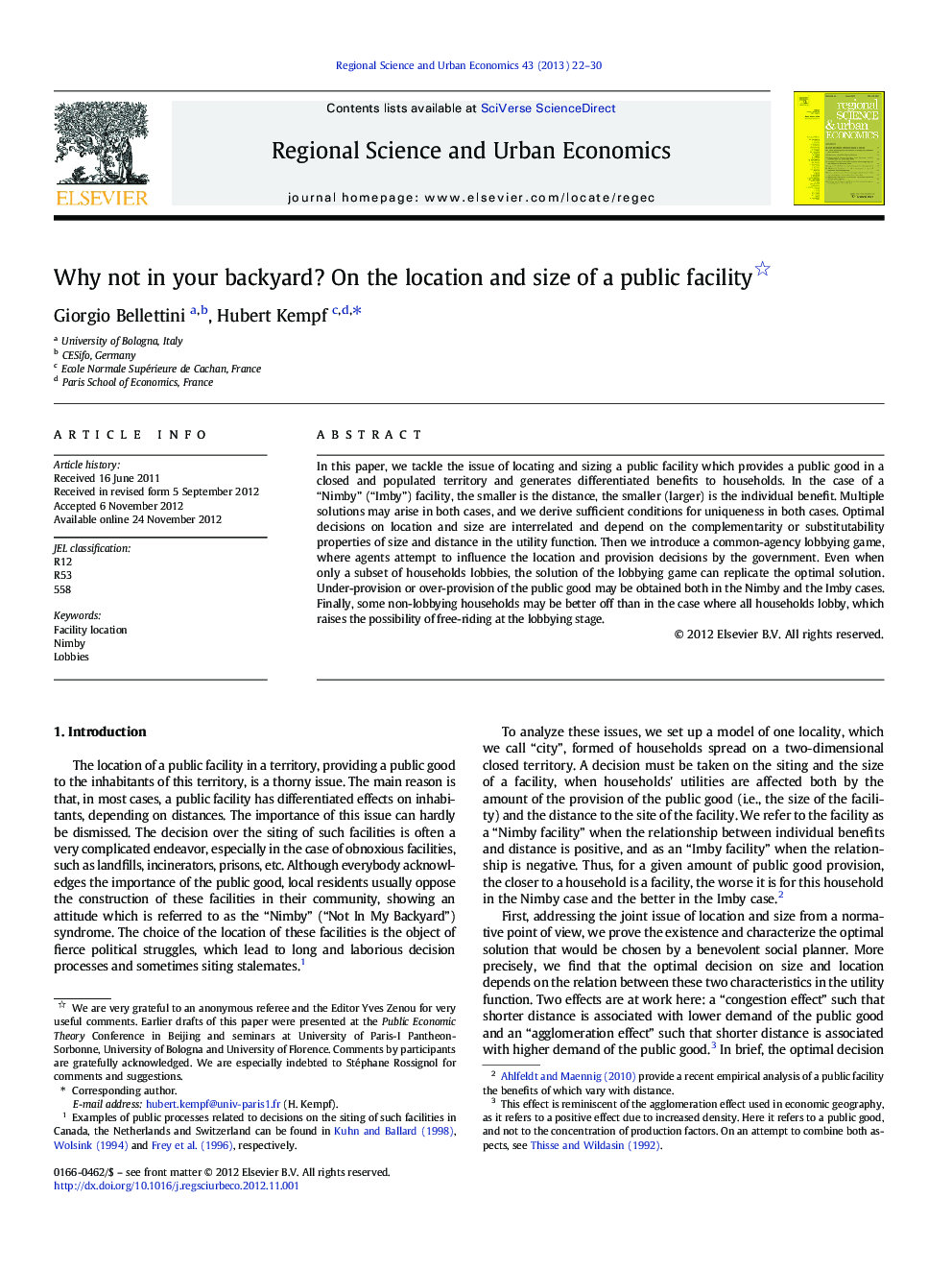| Article ID | Journal | Published Year | Pages | File Type |
|---|---|---|---|---|
| 983990 | Regional Science and Urban Economics | 2013 | 9 Pages |
In this paper, we tackle the issue of locating and sizing a public facility which provides a public good in a closed and populated territory and generates differentiated benefits to households. In the case of a “Nimby” (“Imby”) facility, the smaller is the distance, the smaller (larger) is the individual benefit. Multiple solutions may arise in both cases, and we derive sufficient conditions for uniqueness in both cases. Optimal decisions on location and size are interrelated and depend on the complementarity or substitutability properties of size and distance in the utility function. Then we introduce a common-agency lobbying game, where agents attempt to influence the location and provision decisions by the government. Even when only a subset of households lobbies, the solution of the lobbying game can replicate the optimal solution. Under-provision or over-provision of the public good may be obtained both in the Nimby and the Imby cases. Finally, some non-lobbying households may be better off than in the case where all households lobby, which raises the possibility of free-riding at the lobbying stage.
► We study the location and size of a public facility providing Nimby (Imby) good. ► Existence and multiplicity of optimal solutions are discussed. ► The complementarity (substitutability) of size and location plays a crucial role. ► The solution of a lobbying game is compared with the optimal solution.
